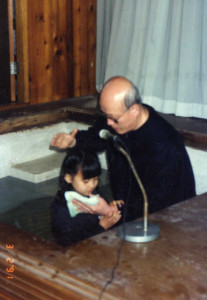I don’t even like chocolate. Yet as I wiped away the angry tears I gnawed down the Snickers bar viciously.
It was one of those days. The parking ticket attendant had almost snickered as I ran to the car, saying as he walked away, “Too late.” $150. That’s 3 months of nappies, I thought. I was already having a down day, having had some bad news earlier. The ticket was just the last straw.
I had a long commute to Melton, and as the tears and rain refused to abate, I started my diatribe against God. He didn’t deserve it. I also called Roy and belted out my feelings. He didn’t deserve it either. Then I told God, “Ok, you know I don’t really mean it. And I know it’s really not that bad. But this is how I feel…”
Have you seen that trailer for the new Pixar movie, Inside Out? It’s all about the emotions (joy, fear, anger, disgust, sadness) living in our minds and determining our choices. I have no idea if it will be a good movie or not, but it poses interesting questions: Do our feelings dictate our decisions? Can we control them? How do we balance all our conflicting emotions?
By the time I got to Melton, God had given me peace about the day’s events, but I remained contemplative about how easily our moods can change. Our favourite sports team wins, and life is awesome. The same team loses, and life stinks. We find a free parking spot in the city, and it’s our lucky day. We get a parking ticket, and the world is against us.
It’s normal to feel a variety of emotions based on the circumstances. However, are our extreme reactions indicative of an imbalance of perspective?
For example, could our hopes be too set on earthly things, which can disappoint and fail us? [“Do not lay up for yourselves treasures on earth, where moth and rust destroy and where thieves break in and steal; but lay up for yourselves treasures in heaven, where neither moth nor rust destroys and where thieves do not break in and steal. For where your treasure is, there your heart will be also.” Matt 6:19-21]
Have we forgotten that our first-world problems are just that – symptoms of lives that are focused on self and unthinking of the real needs and issues of others?
Because, at the end of the day, thank God I can afford the $150 parking ticket. I don’t have to go without food and Micah doesn’t have to forego nappies in order for us to pay that ticket (again, thank God). And, as a friend astutely observed, we pay a lot of money for courses and training. I paid $150 for a lesson in parking laws that I will never forget.
After all, it’s just money. What I lost in my reaction was peace, perspective, and almost people – I took out my grumpiness on God and Roy, who are very understanding and gracious. Not everyone who are unfortunate enough to be in our space during our emotional outbursts are as forgiving. What if the parking attendant saw my irate face and then walked into my church the next week? After all, he didn’t deserve my rage either. It was really my fault.
When there is real loss, it is appropriate to grieve. When there is real injustice, we should feel indignant. When others hurt, no matter the cause, we should offer support and sympathy. But we may also need to spend some quiet time with God and ask Him to re-anchor what we value, prioritise, and feel in Christ – and Christ alone.
by: Jinha Kim
"But those who drink the water I give them will never thirst. Indeed, the water I give them will become in them a spring of water welling up to eternal life." John 4:14


 It made me think about the agony of the cross. Not just for Jesus, who was in unimaginable pain, but for the Father, when Jesus cried out, “My God, My God, why have You forsaken Me?” As the angels pleaded for the Father to commission them to go and rescue their beloved Lord, the Father, with a broken heart, had to hold them back. He knew what had to be done.
It made me think about the agony of the cross. Not just for Jesus, who was in unimaginable pain, but for the Father, when Jesus cried out, “My God, My God, why have You forsaken Me?” As the angels pleaded for the Father to commission them to go and rescue their beloved Lord, the Father, with a broken heart, had to hold them back. He knew what had to be done.

